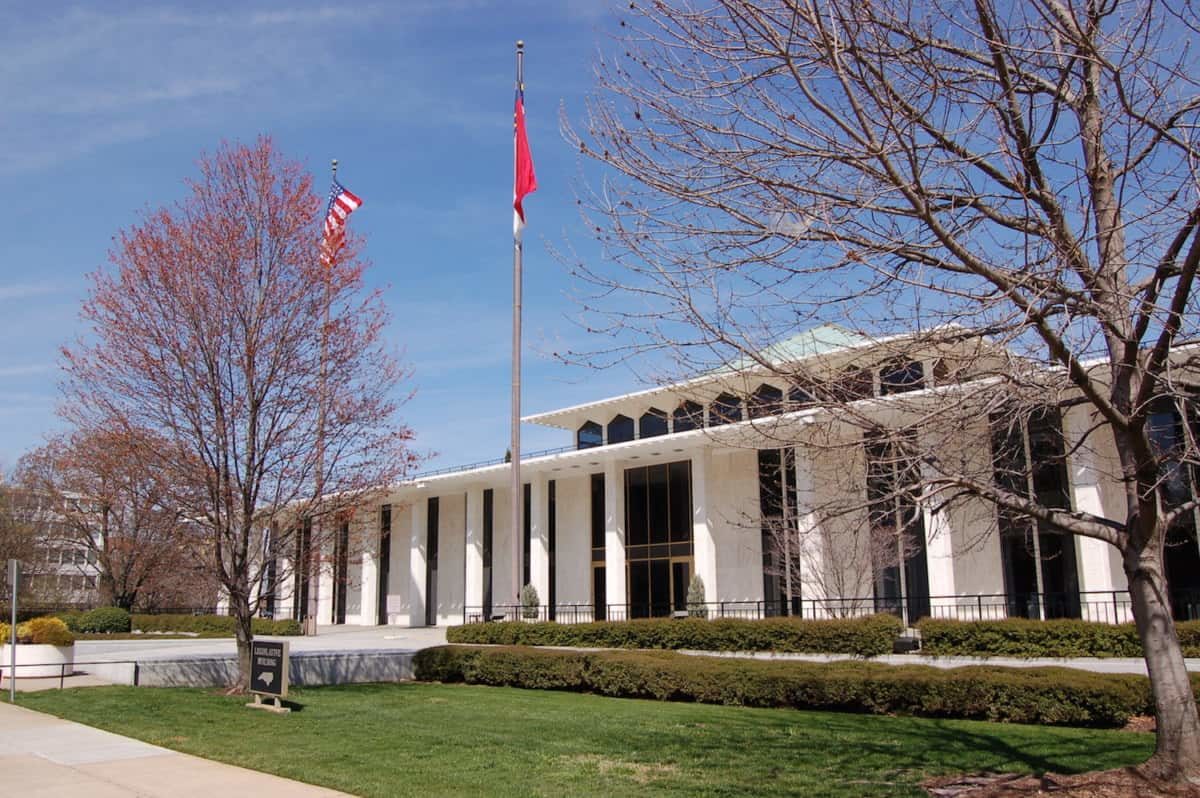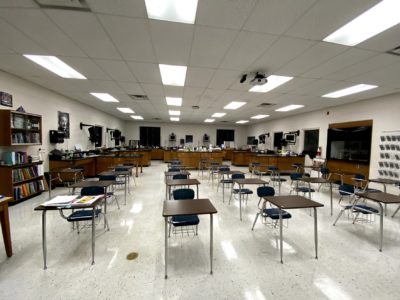

The biggest news from the General Assembly this week is the rapid movement of the Senate bill that would require schools that are fully remote to bring students back to classrooms.
A quick recap: The legislation would make schools open for exceptional needs students under plan A, and under either plan A or plan B for all other students. Plan A is in-person education with minimal social distancing. Plan B is typically a hybrid of in-person and remote learning, with six feet of social distancing.
No district would be able to solely offer remote learning to students, but families who want their students to remain fully virtual would still have that option. The bill doesn’t apply to charter schools, only traditional public schools.
First, the overview. The bill passed its third and final reading in the Senate this week, then moved over to the House and sped through committees before hitting the House floor on Thursday, where it also passed. The snag is that House lawmakers amended the bill to make sure there were “accommodations” that include a remote option for teachers who want it.
Because of the amendment, the bill had to go back to the Senate, and Senate lawmakers did not concur. So now a conference committee will hash out the differences between the two chambers. Look for some movement on this issue next week.
One thing we learned this week is why the bill doesn’t apply to charter schools. Sen. Mike Lee, R-New Hanover, said it’s because charter families can choose to leave the school if they don’t like what it is doing, whereas students at traditional public schools are effectively stuck if they don’t like the decisions of their school.
But Rep. Donny Lambeth, R-Forsyth, said during debate on the bill that he’s been hearing from charter parents that they want charters to be included.
Regardless, all versions of the bill that have passed did not include charters, so it’s likely that is a non-starter.
Whenever the chambers’ respective differences are resolved and the General Assembly passes a final bill, school districts will likely have about two weeks to gear up for the required changes. That is roughly the timetable currently laid out in the bill.
Coincidentally, Gov. Roy Cooper announced that on Feb. 24, the state will move into group 3 of its vaccination distribution. That group encompasses frontline essential workers, but in good news for teachers, they’re being moved to the front of that group.
Teachers, administrators, and school support staff in pre-K-12 as well as child care providers will be prioritized to receive the vaccine first starting Feb. 24, with all other frontline essential workers becoming eligible for the shots on March 10.
There has been a lot of concern from teachers both because of the Senate bill on in-person learning as well as the governor’s remarks last week urging districts to bring students back to school. And groups like the North Carolina Association of Educators, the Public School Forum of North Carolina, and others have been saying that teachers should be moved up in line on the vaccination schedule.
The governor’s announcement was greeted positively by the NCAE in an emailed statement.
“North Carolina public school educators are eager to get back into their classrooms as soon as it is safe to do so, and today’s announcement from Governor Cooper is an important step forward in making that a possibility,” said NCAE President Tamika Walker Kelly in a press release. “By giving all educators, including bus drivers, maintenance workers, nutrition workers, and those who work directly in the classroom vaccination priority, we will be able to resume in-person instruction more quickly and safely. We thank Governor Cooper for listening to the overwhelming message from educators, parents, and the community that educators require vaccination priority.”
The statement also went on to criticize the Senate bill, saying a “one-size-fits-all approach” won’t work.
In other news, Cooper signed into law this week a bill that extends the deadlines for parents to apply for $335 in federal COVID-19 relief funding. Roughly $62 million remains in the pot of funds available for the checks, and those who were not able to apply by the December deadline now have until May. The bill also includes about $1.6 billion in federal COVID-19 relief funds allocated by the federal government, which will be distributed to school districts through the State Department of Public Instruction.
Here is what Cooper said in a press release after signing the legislation.
“This pandemic continues to strain communities across our state, and this investment of federal funds in critical areas will help us defeat COVID-19 and build back a stronger and more resilient North Carolina.”
Finally, a long overdue consensus revenue forecast was released yesterday.
The forecast is that revenues for fiscal year 2020-21 will exceed expectations by about $4.1 billion. The total anticipated revenues are now about $27.6 billion. The revenues for fiscal year 2019-20 were about $24 billion.
The revenue forecast for fiscal year 2021-22 is $27.4 billion, and fiscal year 2022-23 is $28.5 billion.
A press release from Cooper’s office said that the 2021-22 forecast reflects “a slight decrease from the current year due to revenue shifts and timing issues.”
Read more about the forecast here.
Cooper had this to say in his press release:
“While state revenue is strong, people across our state are still hurting and we must use these funds to help them recover from this pandemic,” Cooper said. “We must bring real help to our schools, to small businesses and to people who have lost income and lack health care to ensure our state and entire economy emerge from this pandemic stronger than ever.”
House Speaker Tim Moore, R-Cleveland, also sent out a press release on the forecast.
“Today’s revenue forecast represents promises kept for North Carolina to prepare for economic and natural disasters with a pro-growth tax code and responsible budgets that invest in shared priorities,” Moore said. “People are paying lower taxes in North Carolina and benefitting from a pro-growth approach to the public and private sector.
“It is essential our state maintain these successful policies and financial flexibility, to not return to days of higher taxes, wasteful spending, and budget deficits that hurt North Carolininians in prior economic crises.”


